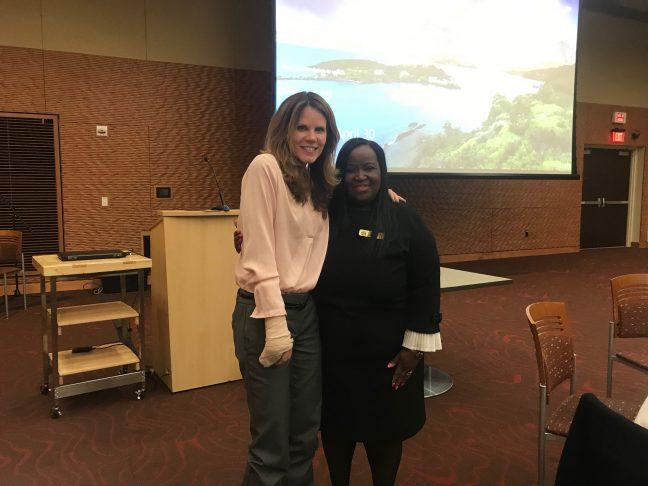State Representatives Chris Taylor, D-Madison, and Shelia Stubbs, D-Madison, held a state budget talk tailored to University of Wisconsin students Tuesday night.
The session focused on Wisconsin budget topics that will directly impact college students, like campus transportation, on-campus renovation funding, housing and overall university funding. Taylor said if her Republican counterparts really want to help keep Wisconsin’s working population growing, it is necessary to fund and support UW and its students.
“The connection Republicans are not making that we need them to make is that you need to fund UW … We are training the future skilled workers that we need,” Taylor said. “The Chamber of Commerce is starting to make that connection … that you need to fund UW if you want to support the next generation of workers.”
Taylor and Stubbs said the UW System’s request to add $107 million to their operating budget wasn’t enough, comparing it to Governor Tony Evers’ proposed $150 million.
Because the budget committee is currently controlled by Republicans, UW should have aimed higher and expected it to be negotiated to a lower number, Stubbs said.
“Why aren’t we requesting equal to what our governor has requested for the UW Systems?” Stubbs said. “Now that the budget is before us, we need to do the advocacy to get those dollars.”
One part of the budget should go towards hiring new administrative staff as well as faculty, Stubbs said. Currently, there is not enough money in the budget to keep enough administrative staff on hand, or retain faculty as other universities are offering much better benefits, Taylor said.
Additionally, Stubbs said it is important to fund the renovation and construction of campus buildings to attract new students to the university and make them want to stay.
“The building improvements are necessary,” Stubbs said. “Why would we not want to fund [the buildings]? They’re important to the students, they’re important to the community and they’re important for research … It doesn’t make sense to not fund it.”
Many students have expressed concern to her about campus safety in the past, Taylor said, which is a reason why she believes campus transportation needs more funding. While UW has 24-hour libraries, the City of Madison does not have 24-hour bus systems, which leaves students to walk home late at night. The walk home is without many blue security lights, one student in attendance said.
Taylor said Evers’ budget included a $22 million dollar increase to transit funding, largely because of the increased demand for transit.
“Communities want more transit options because young people want to be in communities where there’s lots of transit option,” Taylor said.
Stubbs also addressed the lack of affordable housing, both for UW students and in Madison in general, saying federal guidelines of what is “affordable” is not actually affordable, putting strain on poorer communities and UW students.
Students should not have to make a choice between paying rent, paying for groceries and paying their monthly loan payments, Stubbs said.
“Rent is expensive,” Stubbs said. “We’re losing people to Sun Prairie or Fitchburg because they cannot afford the rent in Madison.”
Taylor also stressed the importance of Medicare and Medicaid, saying that students and Wisconsinites should be able to afford healthcare. Taylor said former Gov. Scott Walker’s refusal to accept federal Medicaid expansion money cost the state more money than expanding public healthcare would.
Speaker of the Wisconsin State Assembly Rep. Robin Vos, R-Rochester, has said Republicans will not expand Medicaid, which Taylor interprets as Vos seeing his own power as more important than the will of the voters.
“[The Republican leadership] does not care what the people of the state think,” Taylor said. “And they have rigged the system so substantially with gerrymandering and getting rid of our campaign finance laws and voter IDs that they don’t care what people think. And that’s the most despicable politician, one that does not care about people.”
Stubbs and Taylor encouraged students to get involved in politics because they are incredibly influential when they speak up.
Stubbs also suggested students should speak up if they are being misrepresented by their representatives.
“We want to hear your voices,” Stubbs said. “We want to hear what we could do better … but also what we’re doing right and what we’re missing.”


